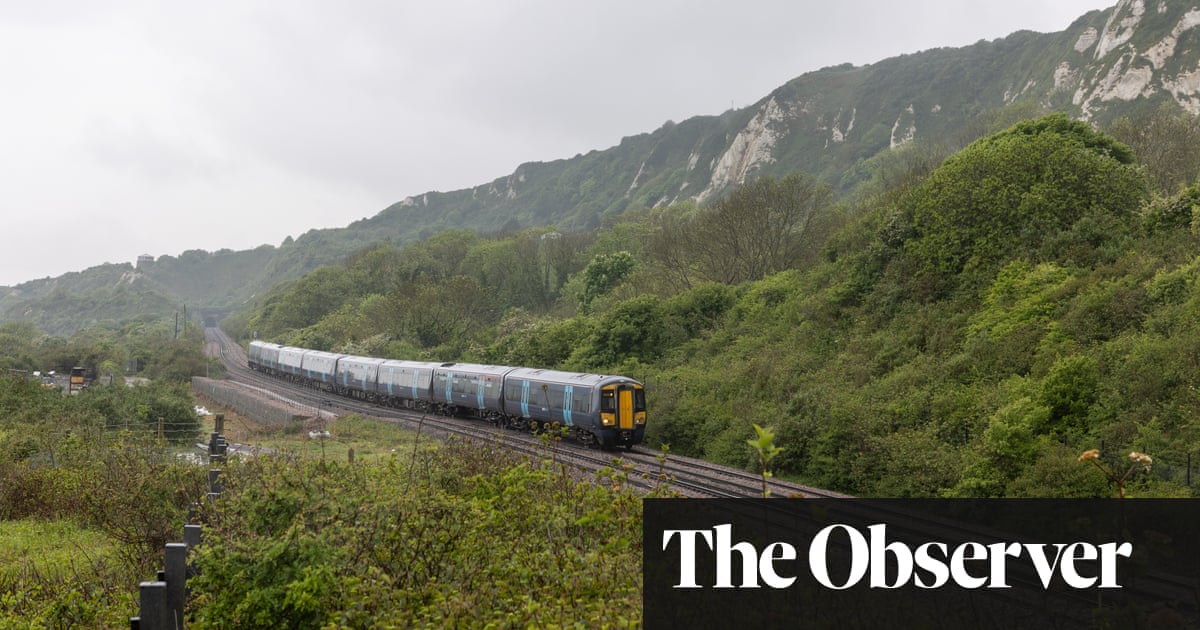Under the chalk cliffs east of Folkestone sits the Warren, a coastal wilderness largely owned by the railway, hosting a nature trail for walkers, as well as the Victorian rail line that runs on to Dover.
It is also, problematically for Network Rail, an active landslide. “Our monitoring here,” says Derek Butcher, principal geotechnical engineer for the southern region, “shows we’re actually moving ever closer to France – despite Brexit.”
…
The Warren is just one of many risk sites. Unprecedented rainfall in the last 18 months – hot on the heels of record-breaking summer heat – has in every sense shifted the ground for the railway. Resilience to extreme weather of all kinds is a preoccupation in planning.
The kind of money that not long ago would have electrified a railway line is now going, in large part, down the drains. Network Rail has dedicated £2.8bn in the next five years simply to bolster Britain’s tracks against the changing climate – and its leaders have warned that it may never be enough to save all the routes that exist today.



That isn’t “money down the drains” it is investing and improving in the infrastructure you offer your customers now and for the future. You over charging cunts.
I think the phrase was used more for the play on words as they are having to install drains to funnel away the increased rainfall.
Network rail doesn’t do the overcharging – they’re government owned and manage the track and signalling. Their ‘customers’ are the TOCs